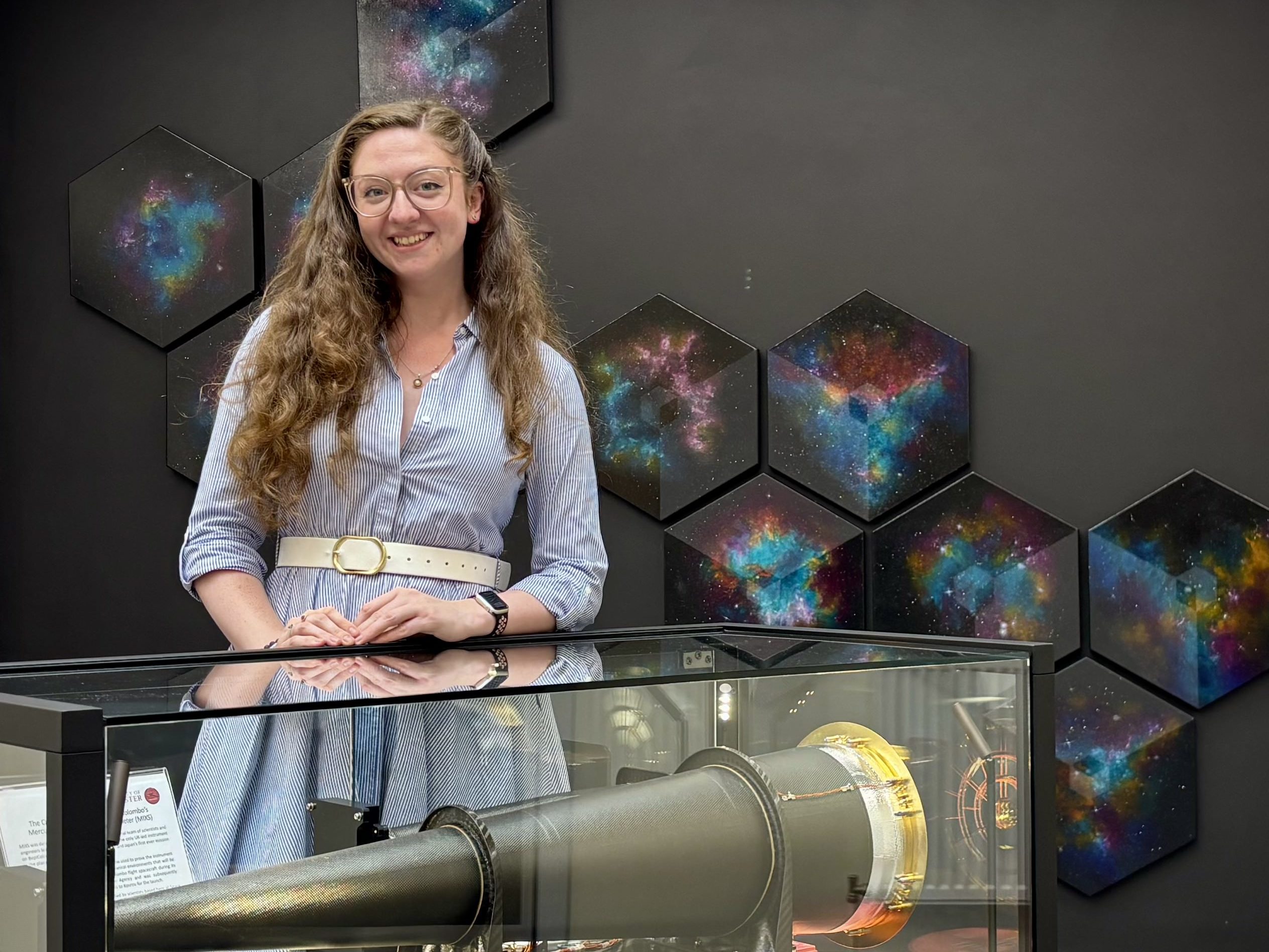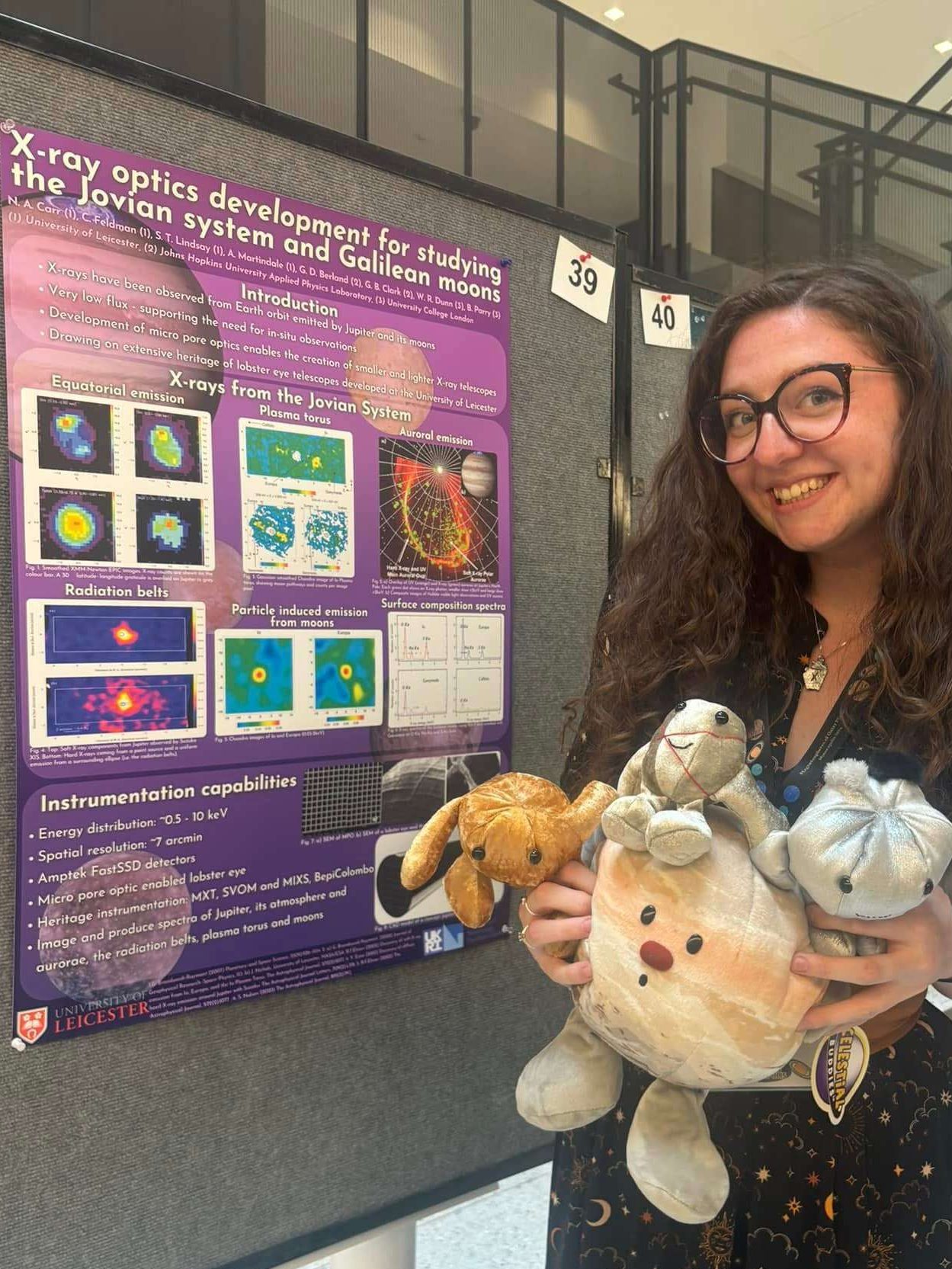Leicester PhD student sets her sights on success thanks to award for telescope research

A University of Leicester postgraduate student developing a concept for a new telescope to study Jupiter has been recognised with a prestigious national award.
Natasha Carr, PhD student in the University’s School of Physics and Astronomy, has received the Florence and Johnstone Stoney Award from the British Federation of Women Graduates (BFWG) in recognition of her work on preparing for X-ray observations in the outer solar system using micro pore X-ray optics.
The award recognises academic excellence for students in the second half of their doctoral study programme and is worth £6,000 to fund her research.
One of BFWG’s main aims is to support women studying in higher education, though they champion all levels of education for women and girls, nationally and internationally. Doctoral student awards were first made in the early years of the organisation and continue today. Through its linked charities, the BFWG Scholarship Trust Fund gives awards for doctoral students for academic excellence and Funds for Women Graduates (FfWG), provides postgraduate students with one-off payments in the event of unforeseen financial need.
The award means that Natasha can develop her novel, in-situ X-ray telescope concept, with a focus on the advancement of the optics, to observe Jupiter and potentially other outer planet systems. It will provide the opportunity to present her concept study and gain feedback on the requirements of such an instrument from some of the world leaders in Jupiter science.
Natasha said: “I am so thankful to my supervisors, Charly Feldman, Simon Lindsay and Adrian Martindale for supporting me through the first half of my PhD and for their constant belief in me. The award presented to me by the BFWG shows that the wider research community is interested in space science and the chance to continue the long legacy of space research at the University of Leicester is a huge privilege.
“Academia often comes with periods of low confidence and self-doubt, but receiving this academic award has allowed me to build my self-belief, which is more valuable than anything!”
X-rays have been observed from Earth orbit emitted by both Jupiter and its moons, but due to the distance from the planet, the intensity of X-rays observed is low. This supports the need for in-situ observations. The Jovian system is host to a unique magnetic environment which generates X-rays through a wide variety of processes. Observations of these X-rays have been located at the north and south aurorae and equator of Jupiter, the radiation belts and from the surfaces of the moons. An in-situ telescope using novel ‘lobster eye’ optics could observe X-rays from the different aspects of the Jovian system during approach and in orbit.
The development of Micro Pore Optics (MPOs) has enabled the creation of smaller, lighter X-ray telescopes with wider fields-of-view, when tessellated into a lobster eye arrangement. This advancement permits an instrument, similar to BepiColombo MIXS or SMILE SXI, to perform in-situ X-ray observations of the systems of the outer planets.
Dr Adrian Martindale, Head of Space Projects and Instrumentation at Space Park Leicester and a Lecturer in Space Instrumentation at the University of Leicester, said:
“The University of Leicester is committed to increasing the representation of women and other underrepresented groups in STEM subjects and I am proud that we have talented colleagues like Natasha who make that strategy a reality through their hard work and expertise.
This award will help to kick start Natasha’s career in space instrumentation research, enabling her to attend meetings with the science community who will benefit from her work developing instrumentation for missions to observe Jupiter’s radiation belts.
Congratulations Natasha!”



